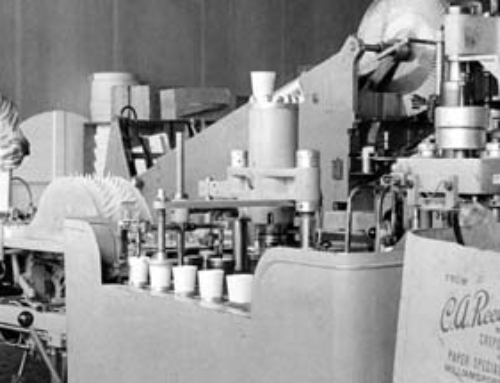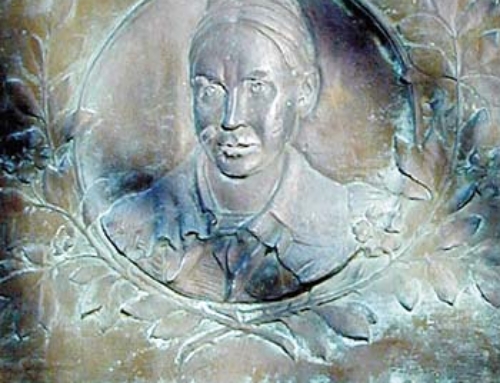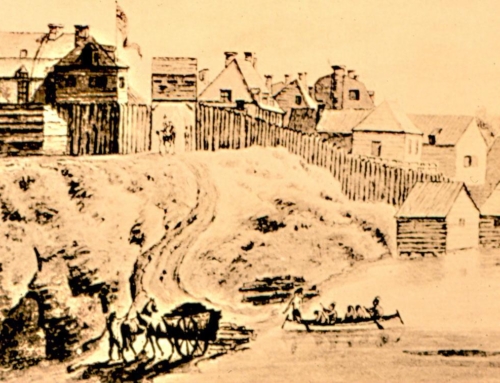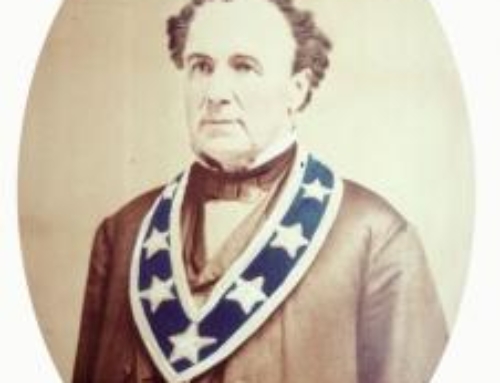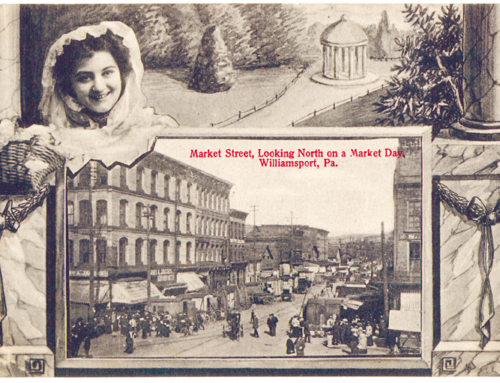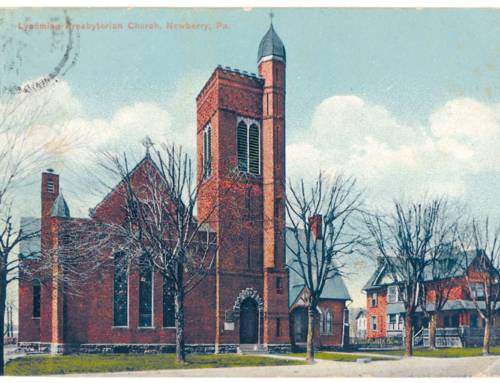America’s oldest band in continuous existence bears his name, but Daniel Repasz didn’t join the group until nine years after it was formed. Historian Mary Russell researches Repasz in a Lycoming County Historical Society Journal article, “Williamsport’s Musical Heritage,” and so does Jeffrey Dugan in his master’s thesis, “The Bands of Williamsport.” Dugan was director of the Imperial Teteques Band, and cites from the Repasz Band’s 100th Anniversary Program in 1931.
 Repasz was born in Clinton Township, Lycoming County, on April 18, 1813. He later lived in Muncy, became a tailor by trade and took up the violin. He moved to Williamsport in 1838 to teach music and dancing. He took additional musical lessons from A.K. Mabie, the director of the Williamsport Band. That musical body later would be renamed for Repasz.
Repasz was born in Clinton Township, Lycoming County, on April 18, 1813. He later lived in Muncy, became a tailor by trade and took up the violin. He moved to Williamsport in 1838 to teach music and dancing. He took additional musical lessons from A.K. Mabie, the director of the Williamsport Band. That musical body later would be renamed for Repasz.
The Williamsport Band was founded in 1831 by Jacob C. Mussina, who was its leader during the first years. The initial instrumentation of the band consisted of flutes, clarinets, piccolos and a French horn played by C. Lawrence, a former soldier under Napoleon Bonaparte.
Repasz joined the band in 1840, probably asked by his musical mentor, director A.K. Mabie, to do so. The instrument that Repasz played in the band was the “keyed bugle,” a cross between a trumpet and a clarinet.
Repasz became director of the band in 1856. He introduced new and improved instruments, as well as innovative musical arrangements. Under his baton, the band gained prominence and toured extensively in the Northeast. As an expression of their esteem and appreciation for all of Repasz’s contributions, the members of the band voted in 1859 to rename the “Williamsport Band” the “Repasz Band.” In the words of William Volkmar, “Repasz came more and more to the front as the man whose accomplished leadership the organization was indebted for its progress.”
When regional strife exploded into Civil War in April 1861, the Repasz Band enlisted as a body. That was not uncommon in those days, as most military bands actually were civilian bands that enlisted as a group. Members spent most of the war attached to the 8th Pennsylvania Cavalry.
The band “dueled” with a Confederate band at Gen. Robert E. Lee’s surrender at Appomatox. A Confederate band would play “Dixie.” The Repasz Band would counter with “Battle Cry of Freedom.” The Confederate band would reply with “Bonnie Blue Flag” and the Repasz Band volleyed with the “Star-Spangled Banner.”
Repasz continued his active involvement with the band until 1885, when he was forced by old age to stop playing his instrument. However, he kept going to the band’s rehearsals and still would dispense musical advice. During the last years of his life, he was confined to his bed after he fell several times and broke his leg.
Three days before Repasz died, he requested his old violin so he could “tune it one more time.”
It was brought out, but he was too weak to hold it. It was put at his side and he gazed at it longingly. Repasz died April 18, 1891, at the age of 78. In Russell’s words, “The Sousa of his day was laid to rest as the Fisk Military Band, attending the funeral as a body, complied with the old musician’s last wish and played his favorite dirge, ‘Flee As A Bird.’ ”
The band named for Repasz and known as “The Granddaddy of American Bands” flourishes today after 168 years.
If you go by Williamsport’s City Hall on a Tuesday night, you can hear the music of some patriotic air spilling from the windows as the band practices. Daniel Repasz would be very pleased.
By Lou Hunsinger Jr., Williamsport Sun-Gazette


